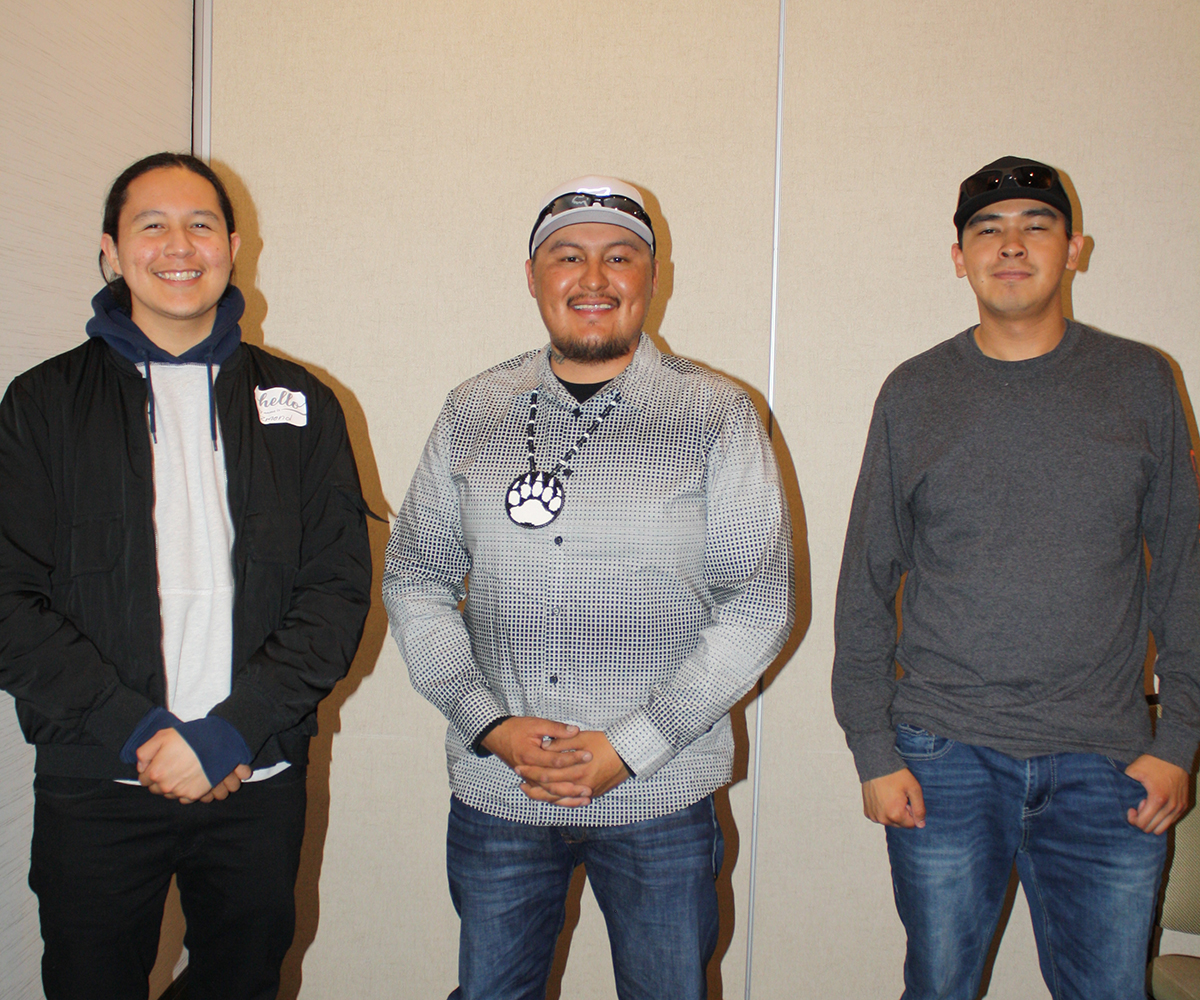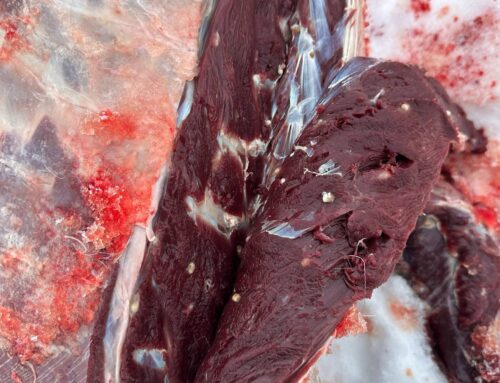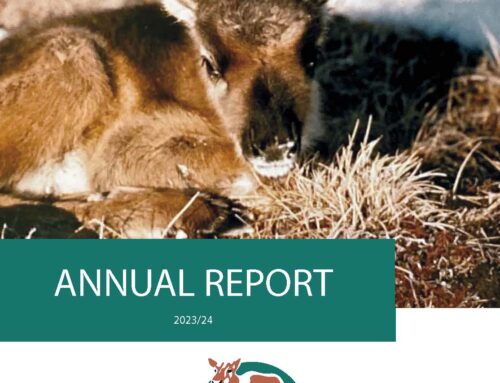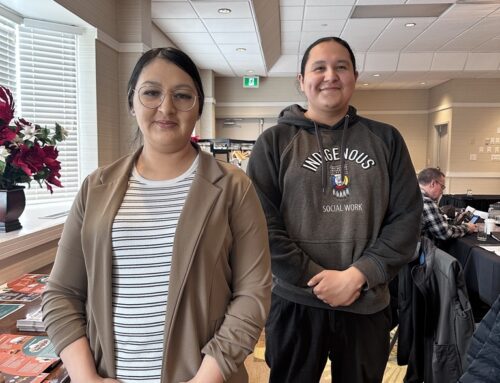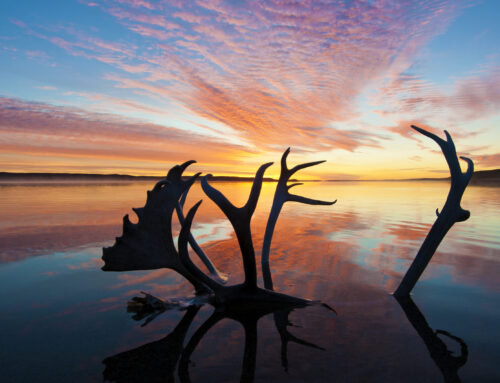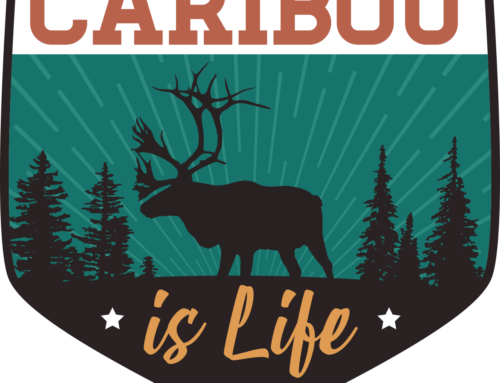May 26, 2022: The Beverly and Qamanirjuaq Caribou Management Board (BQCMB) met in Winnipeg May 3-5, 2022. It not only marked the Board’s first in-person meeting since November 2019 but it was also energized by having a focus on youth engagement.
The BQCMB has been bringing together its members from Inuit, Dene, and Métis communities, as well as government members from across the range of the Beverly and Qamanirjuaq barren-ground herds for 40 years. They travelled from northern Manitoba, northern Saskatchewan, the Kivalliq region of Nunavut and south-eastern Northwest Territories to discuss the many issues facing both the herds and the communities that depend on them. A number of Saskatchewan and Manitoba First Nations chiefs and community members and representatives of Nunavut partner organizations attended as observers also.
Board members continued to raise concerns about key factors affecting the two caribou herds, which are both declining in numbers. The top issues identified included the development of roads, the loss of caribou habitat, and the abundance of predators, especially wolves, on the land. These factors affect the caribou’s migration which is essential to the survival of the herds.
Jan Adamczewski, who represents the Government of Northwest Territories on the BQCMB, explained: “If you look at all the caribou populations across North America, the tundra migratory herds are the only ones that reach hundreds of thousands in size. It’s that migratory lifestyle that allows them to reach those numbers. When we build roads and other infrastructure that start to take away that freedom of movement, then the herds’ ability to reach those great numbers may be affected.”
Another pressing issue is overhunting of the herds and the need to educate hunters on respectful hunting practices. One of the ways the BQCMB is trying to educate hunters is to bring youth and elders together to share information and ideas, and to learn from each other.
Dezmond Sayazie, a recent high school graduate from Sayisi Dene First Nation in Tadoule Lake, Manitoba, was invited to attend the meeting. “Coming here, I’ve now realized the importance of our relationship with the caribou…our drums, our songs, our way of life. There’s a lot of addiction in our communities, and I think bringing this way of life back to our youth can help with that addiction, and help with our identity. After this meeting, I want to learn more about the caribou and about myself as a Dene person. I want to bring that up to my peers and the younger ones and show them that this is who we are – we follow the caribou, and we’ve got to respect the caribou and protect them.”
Dallas Dettanikkeaze, a youth from Northlands Denesuline First Nation in Lac Brochet, Manitoba agreed. “There’s a lot of tragedy, many addictions in the communities, and there’s not much for the youth to do. They don’t know how to hunt, they don’t know how to butcher caribou, and they don’t want to do it anymore – that’s what happened to me. Last time I was on a caribou hunt I was really young. Now, I want to learn. I work with a lot of youth and I’d like to see more of them involved too.”
BQCMB member Ernie Bussidor recruited Sayazie for this meeting, and Napoleon Denechezhe recommended Dettanikkeaze for the trip. “It’s very important to have youth members,” said Denechezhe. “When you hear the elders and chiefs talk, it inspires everybody. They have knowledge from the past and it’s always interesting to hear the elders talk about how they’ve been brought up and how they used to hunt.
We should be educating these young people; young kids need to learn how to hunt, how to preserve caribou…it’s the only way to make them see where they’re coming from.”
For more information, contact:
Lynne Bereza
BQCMB Communications Specialist
Email: lbereza@arctic-caribou.com
Pictured, L to R: Dezmond Sayazie, Ian Donard, Black Lake Denesuline First Nation, and Dallas Dettanikkeaze
